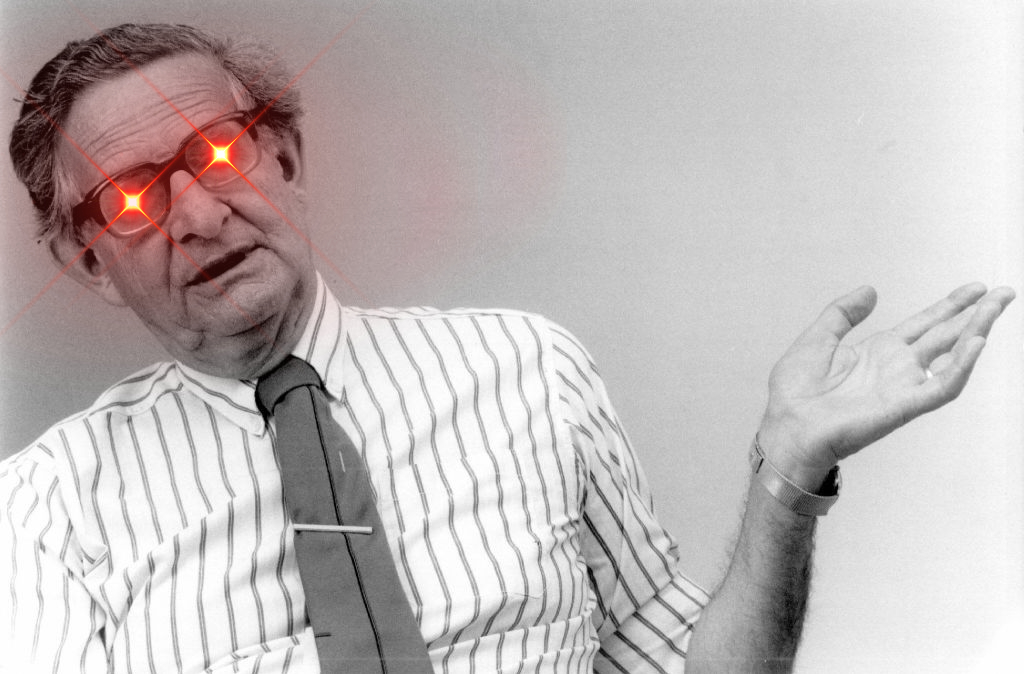In 1997, Hans Eysenck died the most cited psychologist in the world. THEN he was posthumously cancelled. An enquiry said his work was "unsafe"
Code for "problematic but TRUE"
Eysenck studied human intelligence and discovered 8 traits common to geniuses across history. A thread:
Code for "problematic but TRUE"
Eysenck studied human intelligence and discovered 8 traits common to geniuses across history. A thread:

1/ Geniuses have big egos
Eysenck: "Your typical genius is a fighter"
Since geniuses are original, their "battle against orthodoxy is endless"
Potential geniuses with no fighting zeal feel resistance and GIVE UP. Actualized geniuses are disagreeable
They got "inner strength"


Eysenck: "Your typical genius is a fighter"
Since geniuses are original, their "battle against orthodoxy is endless"
Potential geniuses with no fighting zeal feel resistance and GIVE UP. Actualized geniuses are disagreeable
They got "inner strength"


2/ Geniuses often trust their intuitions OVER DATA
Newton and Kepler infamously "fudged" their data to hide discrepancies and back their pet theories
Eysenck writes:
"Usually the genius is right, of course, and we may in retrospect excuse his childish games."
Newton and Kepler infamously "fudged" their data to hide discrepancies and back their pet theories
Eysenck writes:
"Usually the genius is right, of course, and we may in retrospect excuse his childish games."

3/ Geniuses are schizo
They don't limit their thinking to "relevant ideas, memories, images"
Distant ideas look unconnected to a normal mind
But geniuses can see the hidden links
Geniuses produce insight via "unusual associations." Too many hidden links and ur schizophrenic
They don't limit their thinking to "relevant ideas, memories, images"
Distant ideas look unconnected to a normal mind
But geniuses can see the hidden links
Geniuses produce insight via "unusual associations." Too many hidden links and ur schizophrenic
4/ Geniuses are hyper competitive
From childhood, future geniuses possess an "innate assurance of superior ability"
SINGLE most persistent trait among geniuses across different domains?
Their untiring and obsessive "desire to excel"
Rivalries often bring out their best...
From childhood, future geniuses possess an "innate assurance of superior ability"
SINGLE most persistent trait among geniuses across different domains?
Their untiring and obsessive "desire to excel"
Rivalries often bring out their best...

5/ Why high IQ isn't enough
Eysenck wrote high IQ is a "necessary but not sufficient" condition for genius
A high IQ man will FAIL to achieve if he doesn't have the disagreeability (ego-strength) to fight orthodoxy
And if he doesn't have an extremely high DESIRE to succeed
Eysenck wrote high IQ is a "necessary but not sufficient" condition for genius
A high IQ man will FAIL to achieve if he doesn't have the disagreeability (ego-strength) to fight orthodoxy
And if he doesn't have an extremely high DESIRE to succeed

6/ CUNNING problem selection
A genius intellect can be wasted on the wrong problem
A problem may be too little for a genius - or unsolvable
A genius must pick an extremely hard problem that's nevertheless "soluble at the present time"
Aim high but dont invade russia in winter
A genius intellect can be wasted on the wrong problem
A problem may be too little for a genius - or unsolvable
A genius must pick an extremely hard problem that's nevertheless "soluble at the present time"
Aim high but dont invade russia in winter

7/ Geniuses use the unconscious
Eysenck: "Often when one works at a hard question, nothing good is accomplished"
BUT, this apparently unproductive session introduces the problem to the unconscious, which sets to work
During the second crack, "the decisive idea presents itself"
Eysenck: "Often when one works at a hard question, nothing good is accomplished"
BUT, this apparently unproductive session introduces the problem to the unconscious, which sets to work
During the second crack, "the decisive idea presents itself"
8/ Geniuses persist
The smartest man with not enough persistence
Will LOSE to an extremely persistent man with *just enough* intelligence
The latter will "achieve greater eminence" as intelligence doesn't, by itself, mean genius achievement
Zeal and striving are crucial too
The smartest man with not enough persistence
Will LOSE to an extremely persistent man with *just enough* intelligence
The latter will "achieve greater eminence" as intelligence doesn't, by itself, mean genius achievement
Zeal and striving are crucial too

9/ Hans Eysenck, once the world's most cited psychologist, concluded that geniuses have:
• High IQ
• Uncommon persistence
• Irrational belief in his intuitions
• Conscious mind in tune with his unconscious
• Brilliant problem selection
• Fire to compete
• A schizo brain..
• High IQ
• Uncommon persistence
• Irrational belief in his intuitions
• Conscious mind in tune with his unconscious
• Brilliant problem selection
• Fire to compete
• A schizo brain..

@jordanbpeterson George Orwell on his creative process:
"Writing a book is a horrible, exhausting struggle, like a long bout with some painful illness. One would never undertake such a thing if one were not driven on by some demon whom one can neither resist nor understand."
"Writing a book is a horrible, exhausting struggle, like a long bout with some painful illness. One would never undertake such a thing if one were not driven on by some demon whom one can neither resist nor understand."

@jordanbpeterson Thank you for reading fren
I appreciate your time!
If you enjoyed this thread, do repost and Genius-Pill your timeline👇🏻
Follow me for more: @oldbooksguy

I appreciate your time!
If you enjoyed this thread, do repost and Genius-Pill your timeline👇🏻
Follow me for more: @oldbooksguy
https://x.com/oldbooksguy/status/1753134524047978784?s=20

Great follow-up thread from @rjmalka on how the ancient view of science was different from ours, and why brilliant men sometimes fudge their data
https://x.com/rjmalka/status/1753141489108910155?s=20
• • •
Missing some Tweet in this thread? You can try to
force a refresh











